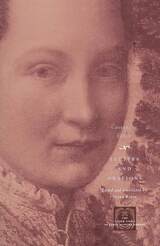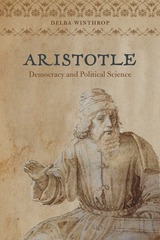

Meticulous eloquence.
Publius Aelius Aristides Theodorus was among the most celebrated, versatile, and influential authors of the Second Sophistic era and an important figure in the transmission of Hellenism. Born to wealthy landowners in Mysia in AD 117, he studied in Athens and Pergamum and had begun a promising oratorical career when in the early 140s he fell chronically ill and retreated to the healing shrine of Asclepius in Pergamum. There he began to follow a lifelong series of dream revelations and instructions from the god that inspired the six autobiographical books of Sacred Tales, an invaluable record of both temple therapy and personal religious experience published in the 170s. By 147 Aristides was able to resume his public activities as a member of the landed and gubernatorial elite and to pursue a successful oratorical career. Based at his family estate in Smyrna, he traveled between bouts of illness and produced speeches and lectures for both public and private occasions, declamations on historical themes, polemical works, prose hymns, and essays on a wide variety of subjects, all of it displaying deep and creative familiarity with the classical literary heritage. He died between 180 and 185.
This edition of Aristides’ complete works offers fresh translations and texts based on the critical editions of Lenz-Behr (Orations 1–16) and Keil (Orations 17–53). Volume I contains the Panathenaic Oration, a historical appreciation of classical Athens and Aristides’ most influential work, and A Reply to Plato, the first of three essays taking issue with the attack on orators and oratory delivered in Plato’s Gorgias.

The preeminent orator of ancient Athens.
Demosthenes (384–322 BC), orator at Athens, was a pleader in law courts who later became also a statesman, champion of the past greatness of his city and the present resistance of Greece to Philip of Macedon’s rise to supremacy. We possess by him political speeches and law-court speeches composed for parties in private cases and political cases. His early reputation as the best of Greek orators rests on his steadfastness of purpose, his sincerity, his clear and pungent argument, and his severe control of language. In his law cases he is the advocate, in his political speeches a castigator not of his opponents but of their politics. Demosthenes gives us vivid pictures of public and private life of his time.
The Loeb Classical Library edition of Demosthenes is in seven volumes.

Meticulous eloquence.
Publius Aelius Aristides Theodorus was among the most celebrated, versatile, and influential authors of the Second Sophistic era and an important figure in the transmission of Hellenism. Born to wealthy landowners in Mysia in AD 117, he studied in Athens and Pergamum and had begun a promising oratorical career when in the early 140s he fell chronically ill and retreated to the healing shrine of Asclepius in Pergamum. There he began to follow a lifelong series of dream revelations and instructions from the god that inspired the six autobiographical books of Sacred Tales, an invaluable record of both temple therapy and personal religious experience published in the 170s. By 147 Aristides was able to resume his public activities as a member of the landed and gubernatorial elite and to pursue a successful oratorical career. Based at his family estate in Smyrna, he traveled between bouts of illness and produced speeches and lectures for both public and private occasions, declamations on historical themes, polemical works, prose hymns, and essays on a wide variety of subjects, all of it displaying deep and creative familiarity with the classical literary heritage. He died between 180 and 185.
This edition of Aristides’ complete works offers fresh translations and texts based on the critical editions of Lenz-Behr (Orations 1–16) and Keil (Orations 17–53). Volume II contains Oration 3 (In Defense of the Four) and Oration 4, (A Reply to Capito), which along with Oration 2 take issue with the attack on orators and oratory delivered in Plato’s Gorgias.

The preeminent orator of ancient Athens.
Demosthenes (384–322 BC), orator at Athens, was a pleader in law courts who later became also a statesman, champion of the past greatness of his city and the present resistance of Greece to Philip of Macedon’s rise to supremacy. We possess by him political speeches and law-court speeches composed for parties in private cases and political cases. His early reputation as the best of Greek orators rests on his steadfastness of purpose, his sincerity, his clear and pungent argument, and his severe control of language. In his law cases he is the advocate, in his political speeches a castigator not of his opponents but of their politics. Demosthenes gives us vivid pictures of public and private life of his time.
The Loeb Classical Library edition of Demosthenes is in seven volumes.

The preeminent orator of ancient Athens.
Demosthenes (384–322 BC), orator at Athens, was a pleader in law courts who later became also a statesman, champion of the past greatness of his city and the present resistance of Greece to Philip of Macedon’s rise to supremacy. We possess by him political speeches and law-court speeches composed for parties in private cases and political cases. His early reputation as the best of Greek orators rests on his steadfastness of purpose, his sincerity, his clear and pungent argument, and his severe control of language. In his law cases he is the advocate, in his political speeches a castigator not of his opponents but of their politics. Demosthenes gives us vivid pictures of public and private life of his time.
The Loeb Classical Library edition of Demosthenes is in seven volumes.

The preeminent orator of ancient Athens.
Demosthenes (384–322 BC), orator at Athens, was a pleader in law courts who later became also a statesman, champion of the past greatness of his city and the present resistance of Greece to Philip of Macedon’s rise to supremacy. We possess by him political speeches and law-court speeches composed for parties in private cases and political cases. His early reputation as the best of Greek orators rests on his steadfastness of purpose, his sincerity, his clear and pungent argument, and his severe control of language. In his law cases he is the advocate, in his political speeches a castigator not of his opponents but of their politics. Demosthenes gives us vivid pictures of public and private life of his time.
The Loeb Classical Library edition of Demosthenes is in seven volumes.

The preeminent orator of ancient Athens.
Demosthenes (384–322 BC), orator at Athens, was a pleader in law courts who later became also a statesman, champion of the past greatness of his city and the present resistance of Greece to Philip of Macedon’s rise to supremacy. We possess by him political speeches and law-court speeches composed for parties in private cases and political cases. His early reputation as the best of Greek orators rests on his steadfastness of purpose, his sincerity, his clear and pungent argument, and his severe control of language. In his law cases he is the advocate, in his political speeches a castigator not of his opponents but of their politics. Demosthenes gives us vivid pictures of public and private life of his time.
The Loeb Classical Library edition of Demosthenes is in seven volumes.

The preeminent orator of ancient Athens.
Demosthenes (384–322 BC), orator at Athens, was a pleader in law courts who later became also a statesman, champion of the past greatness of his city and the present resistance of Greece to Philip of Macedon’s rise to supremacy. We possess by him political speeches and law-court speeches composed for parties in private cases and political cases. His early reputation as the best of Greek orators rests on his steadfastness of purpose, his sincerity, his clear and pungent argument, and his severe control of language. In his law cases he is the advocate, in his political speeches a castigator not of his opponents but of their politics. Demosthenes gives us vivid pictures of public and private life of his time.
The Loeb Classical Library edition of Demosthenes is in seven volumes.

The preeminent orator of ancient Athens.
Demosthenes (384–322 BC), orator at Athens, was a pleader in law courts who later became also a statesman, champion of the past greatness of his city and the present resistance of Greece to Philip of Macedon’s rise to supremacy. We possess by him political speeches and law-court speeches composed for parties in private cases and political cases. His early reputation as the best of Greek orators rests on his steadfastness of purpose, his sincerity, his clear and pungent argument, and his severe control of language. In his law cases he is the advocate, in his political speeches a castigator not of his opponents but of their politics. Demosthenes gives us vivid pictures of public and private life of his time.
The Loeb Classical Library edition of Demosthenes is in seven volumes.

Selected Letters, Orations, and Rhetorical Dialogues is a careful selection of Scudéry's shorter writings, emphasizing her abilities as a rhetorical theorist, orator, essayist, and letter writer. It provides the first English translations of some of Scudéry's Amorous Letters, only recently identified as her work, as well as selections from her Famous Women, or Heroic Speeches, and her series of Conversations. The book will be of great interest to scholars of the history of rhetoric, French literature, and women's studies.
READERS
Browse our collection.
PUBLISHERS
See BiblioVault's publisher services.
STUDENT SERVICES
Files for college accessibility offices.
UChicago Accessibility Resources
home | accessibility | search | about | contact us
BiblioVault ® 2001 - 2025
The University of Chicago Press









